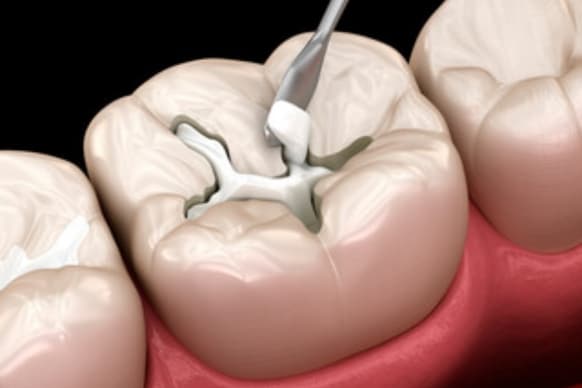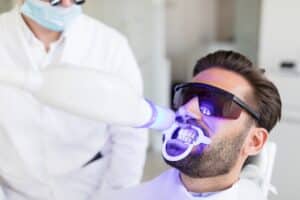Composite fillings or dental bonding can endure for eight years or longer with proper dental care and protection. To assist in maximizing the lifespan of your dental bonding material, this blog provides advice for maintaining your bonding through effective oral hygiene, wise dietary decisions, and additional strategies.
How to make dental bonding last longer?
By avoiding foods that could chip or crack teeth, covering their teeth while they sleep, maintaining proper oral hygiene, and scheduling frequent checkups and cleanings at the dentist, patients can preserve the composite resin material used in dental bonding.
Avoid hard foods that may cause chips and cracks
Although dental bonding is comparatively strong, too much continuous pressure is too much for the composite resin to bear. Chips and cracks can result from hard meals. Make sure not to bite into any hard sweets, ice, or other potentially harmful things to avoid this. Because sticky foods can tug on the composite resin, they may also harm the tooth-bonding material. This can require the dental bonding to be replaced or repaired, which would increase the patient’s expenses and time commitment.
Protect teeth from bruxism
Similar to how food can lead to the chipping or cracking of dental bonding, other teeth may also be negatively impacted. In actuality, one of the primary reasons for dental bonding repair is other teeth. Bruxism is the term for the condition where many people grind their teeth while they sleep. It is crucial to use a mouthguard that shields teeth from the impacts of bruxism to stop this from harming teeth. If necessary, general dentists can usually supply customized mouthguards for patients who grind their teeth.
Practice good oral hygiene by brushing and flossing
Bad dental hygiene might potentially damage dental bonding. The dental bonding material may be impacted by cavities, and if teeth are not kept clean, the composite resin’s color may tarnish. It’s critical to floss at least once a day, brush two to three times a day, and use mouthwash as prescribed. Make careful to give the dental bonding material a gentle brushing.
Regular dental check-ups and cleanings are crucial for maintaining good oral health. During these routine visits, the dentist can evaluate the condition of dental bonding and address any issues to prevent them from worsening. Ideally, patients should schedule a check-up and cleaning every four to six months to ensure optimal oral health.
If you’re interested in dental bonding or have specific questions about the procedure, consider making an appointment with our dental specialists. Our team is dedicated to addressing your concerns and guiding you to choose the most suitable cosmetic procedure for enhancing both the appearance and health of your teeth. Whether you need dental bonding or other services like composite fillings in Keller, TX, we are here to provide comprehensive dental care tailored to your needs.





